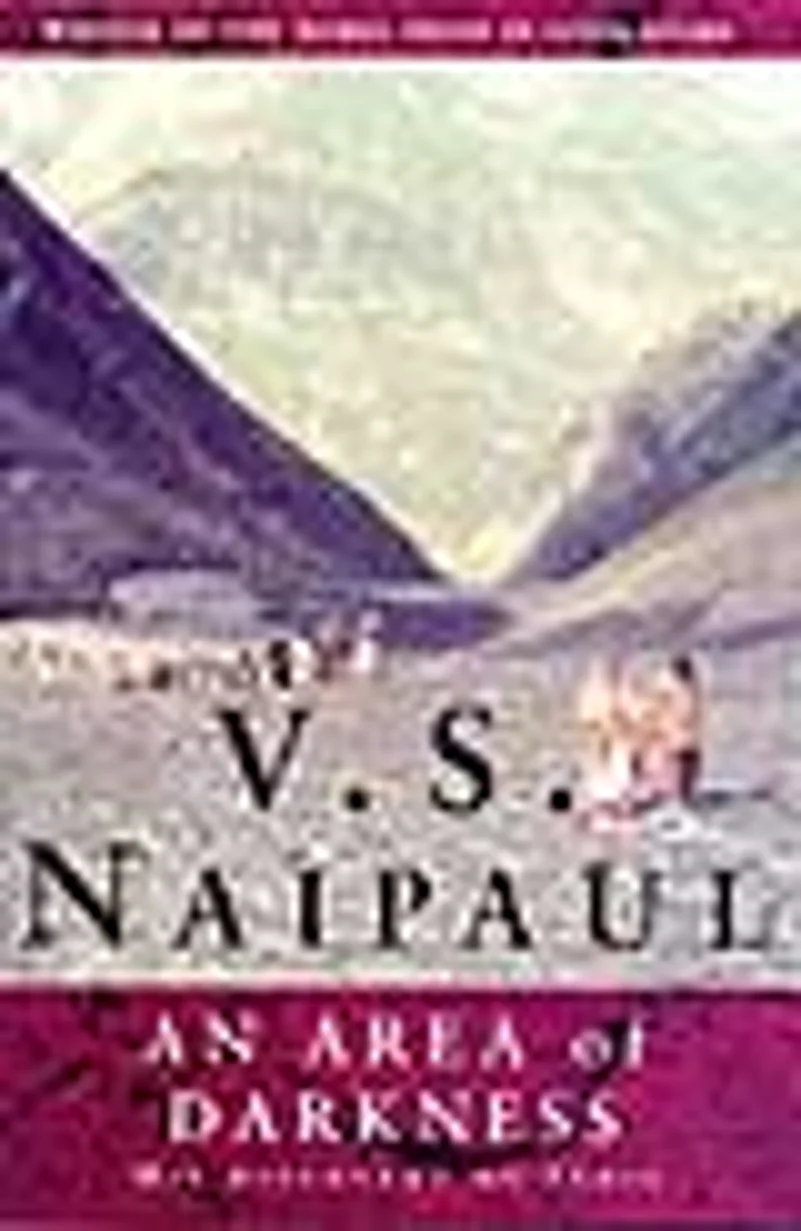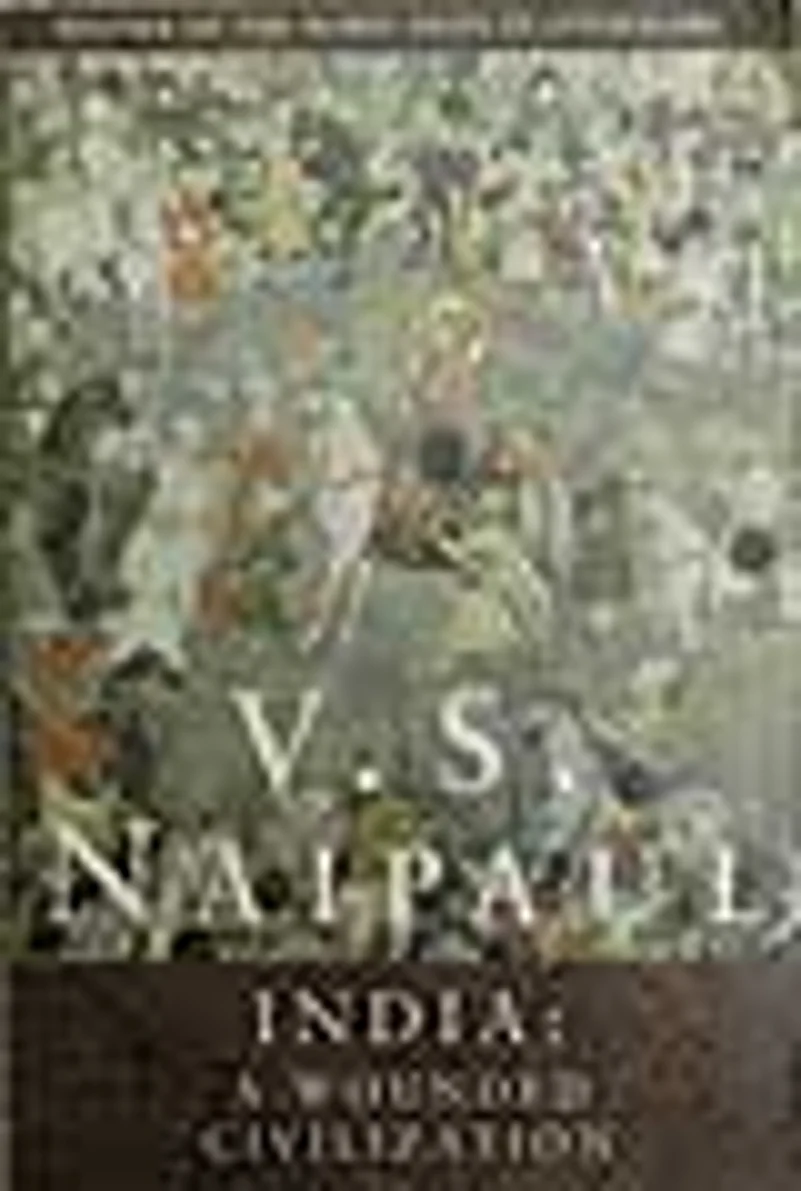1962

By 1962, Nehru was old and ailing, and the glitter of freedom and the Congress party's revolution was fading. For all his five-year plans, India was still painfully poor. The national mood of fatigue coincided with the arrival on India's shores of its doubly displaced son Vidia Naipaul, whose approach to his ancestral land had been decided years before. Aged barely 17, he had written to his sister Kamla, then studying at Benares Hindu University: "I am glad you told off those damned inefficient, scheming Indians. I am planning to write a book about these damned people and the wretched country of theirs, exposing their detestable traits. Grill them on everything." Now it was time for Vidia to write that book, to grill them on everything: An Area of Darkness was the result, offering a passionate analysis of what was wrong and right with the country.
Arriving by ship in Bombay with his wife Pat, Vidia took up an introduction to a young publisher at oup, Ravi Dayal. When they met, Dayal noticed Vidia's denim shirt and tight trousers, enjoyed his sense of humour and doubted his claimed caste inheritance: "I couldn't see a pukka Brahmin becoming an indentured labourer. He was extremely funny, a very good mimic, doing accents and tones. He was a wonderful storyteller in those days. It didn't have the acid of An Area of Darkness at that stage." Dayal observed that Vidia was in a state of high nervous tension, "endlessly looking for clean food...I think he was fashioning himself a bit, and India was slowly becoming a character for him. His idea was very amorphous when I first met him in Bombay."

After nearly a year of travel and enquiry in India for the book, Vidia returned to London and wrote a letter to Moni Malhoutra, an IAS officer with whom he had stayed in the district of Faizabad, UP:
"The point that one feels inescapable is the fact of India's poverty; and how deep is one's contempt for those Indians who, finding no difficulty in accepting one standard in India and another outside it, fail to realise this, and are failing to work night and day for the removal of this dreadful insult and humiliation.... The lavatories at Palam (airport) were literally covered with shit and the aerodrome officer could only speak of the shortage of staff (i.e. sweepers). I wonder, wonder if the shitting habits of Indians are not the key to all their attitudes.... So goodbye to shit and sweepers; goodbye to people who tolerate everything; goodbye to all the refusal to act; goodbye to the absence of dignity; goodbye to the poverty; goodbye to caste and that curious pettiness which permeates that vast country; goodbye to people who, though consulting astrologers, have no sense of their destiny as men.... Not only must caste go, but all those sloppy Indian garments; all those saris and lungis; all that squatting on the floor to eat, to write, to serve in a shop, to piss.... Probably I am mad. But it seems to me that everything conspires to keep India down."
These ideas would mature in An Area of Darkness. India remained for V.S. Naipaul "the land of my childhood, an area of darkness.... I had learned my separateness from India, and was content to be a colonial, without a past, without ancestors". This was a premature and inaccurate conclusion: he was not content to be a colonial, and he would continue to seek an ancestral past, far from the Caribbean of his childhood. Vidia was a product of the Indian diaspora who wanted to link himself to the civilisation of his forebears.
.
1975

In 1975, V.S. Naipaul returned to India with his mistress, Margaret Gooding, to write a series of articles. Amalgamated and with slight alterations, they became a book, India: A Wounded Civilisation. Vidia wrote in his journal on August 20: "With each successive arrival in India my dismay and apprehension lessen. It may be that I have learned a new way of seeing or know better now what to expect. ..it may also be that I am, perhaps importantly, less of a colonial." During his journey, Vidia found local journalists to guide him, took whatever hospitality and assistance was available, interviewed people in great detail, linked what he had discovered to his existing ideas about the country, and wrote up the results fast. He was good at picking up new information, and seeing how it might become important. Talking to a consultant engineer in Bombay, Shirish Patel, he learned about the Shiv Sena, a local political group that was later to assume national relevance. Vidia noted "its organisation and growth; the theatricality of its leader, Bal Thackeray, a failed cartoonist.... Again, I have the feeling of a country only just discovering what it has committed itself toindependence, industrialisation, democracy; a process achieving a dynamic that is now beyond the control of any leader."
Patel observed Vidia's anger when an official in Rajasthan failed to do his bidding: "The Collector said: At the border, at the rest house, an official from the other district will meet you. You take a break, change cars, wash or anything and the other car will take you around. Vidia said, no, if you can't give me a car to go to Kota, I don't want your car. The Collector said, I'm bound by the rules. I cannot take the car out of the district.... Vidia is not happy...he says, I'll take the bus. So at night we go to this bus stand and he and Margaret are put on the state transport bus, full of goats, sheep, farmers. It's jam-packed...." Soon afterwards, the lovers had an argument, and Margaret returned to Argentina. "I had to send her back," Vidia said later, as if she were an unwanted parcel, "I had to send her home." This was to be a pattern on their foreign tours: passion, dispute, dismissal.
Travelling through the country, Vidia milked his hosts for information, and was happy to dismiss many of them afterwards as fools and idlers. In his journal, he noted: "One felt the irrelevance of this middle-class element, so parasitic...offering nothing of value really, speaking only to their own group. (Prem Shankar) Jha assaulted me. He allowed no conversation to develop. No idea was explored. He was the Indian journalistmaking simple patterns of simple facts. Such shoddy ideas adrift in this society." Prem Shankar Jha remembered, "He was always looking for offence, looking for the hidden barb. He had already decided what he wanted to say, and was looking for evidence."
In Delhi in September, Vidia found that Indira Gandhi's Emergency was making people reluctant to speak openly. Middle-class society in the capital was split between those who were delighted the buses were running on time, and others who were afraid, believing democracy in India was finished. Uniquely, Vidia thought the Emergency was inconsequential. He told Vinod Mehta, a magazine editor, "Don't worry, this will pass." Mehta thought at the time it was a "quite extraordinary" thing to say, but Vidia was right.
Through 1976, spending much of his time alone in Wiltshire, Vidia wrote up his conclusions. He focused less on the effects of the Emergency than on an analysis of what made India the way it was. At the back of his mind, using the ruined city of Vijayanagar as his template, was a certainty that the nation had been incapacitated by the Muslim invasions of earlier centuries. One British reviewer of A Wounded Civilisation complained that he only noticed "squalor, inefficiency, disillusionment". What about the beauty and the pleasures of India? Vidia had a marked aversion to foreign Indophiles. In an interview with the New York Times, he declared tetchily, "How tired I am of the India lovers, those who go on about 'beautiful India'the last gasp of a hideous, imperialistic vanity. And the mark of a second-rate mind."
1988

In December, Vidia reactivated his contacts for a new book, India: A Million Mutinies Now. Aged 56, he would spend five months travelling, beginning in Bombay, looping south through Goa, Bangalore, Mysore and Madras before heading north to Calcutta and working his way west to Delhi, interloping in Lucknow, the Punjab and Kashmir. Old helpers were instructed to provide introductions and information. When he telephoned a journalist friend at his office in Calcutta, the staffer who picked up the telephone failed to believe that he was speaking to V.S. Naipaul and responded, "Oh yes, I'm Salman Rushdie." Naipaul was flummoxed, and suggested that the man ring him at the Oberoi hotel to confirm his identity. This did not achieve the desired effect, because the reporter's call was put through to a pastry chef, named Nagpal.

February 18, 2002: Naipaul inaugurates the International Festival of Indian literature as Vajpayee watches him
India was then at the beginning of a social, political and economic upheaval that would lead to the nation's rise at the end of the century, a million mutinies leading to a new phase of creativity and economic progress. "Independence had come to India like a kind of revolution; now there were many revolutions within that revolution," Vidia wrote. He sensed that something important was taking place in a country where others still saw only a continuation of old patterns. India: A Million Mutinies Now would be longtoo longbut exceptional in its narrative perception. To the surprise of readers of his earlier books, Vidia saw beyond the corruption and the violence to an original and redemptive vision. It was a personal homecoming, as he continued to seek an ancestral past, trying to link himself to a nation that was, in his own imagination, his source.
1992
When he visited India for the first time in 1962, V.S. Naipaul had written to a friend: "The injection of religion into politics is the curse of this country, and...will throw India more and more into the hands of the Hindu reaction, as distasteful as any other type of fanaticism." Thirty years later, when zealots smashed a mosque in Ayodhya built by the Mughal emperor Babur, Vidia felt a surge of excitement. Suffering from excruciatingly painful bone spurs on his spine which left him barely able to walk, he seized on an event that was being presented by the world media as the end of Indian secularism, and decided contrarily that it represented evidence of regeneration. He gave an interview to the Times of India which suggested in guarded terms that he approved of what had happened: "One needs to understand the passion that took them to the top of the domes.... You can't dismiss it.... The movement is now from below.... Wise men should understand it and ensure that it does not remain in the hands of fanatics. Rather, they should use it for the intellectual transformation of India." Letters of applause arrived from supporters of Hindu assertiveness, many of them from deracinated members of the Indian diaspora. Vidia defended his stand over the coming years, his opinions luring him to greater controversy: "For the poor of India to identify something like this, pulling down the first Mughal emperor's tomb, is a marvellous idea. I think in years to come it will be seen as a great moment.... It would be a historical statement of India striving to regain her soul." The political fragmentation and the hundreds of deaths in the rioting that followed the destruction of the Babri Masjid were not his concern: "I didn't kill them myself."


























